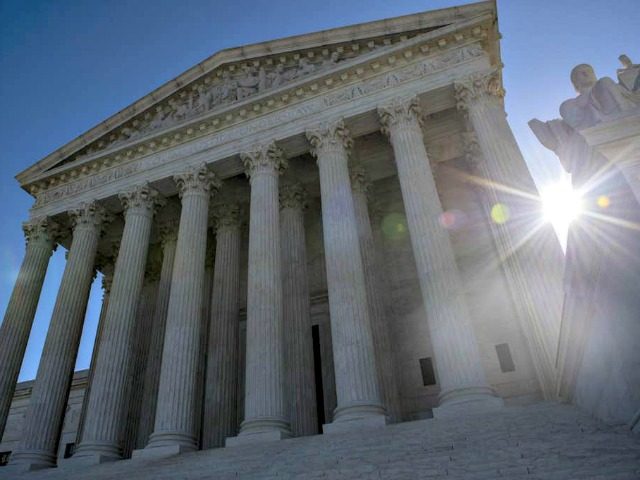The attorneys general of 18 states are asking the U.S. Supreme Court to uphold Mississippi’s law that bans abortions after 15 weeks’ gestation.
Citing “advances in science” that have led to significant changes since the 1973 landmark case in Roe v. Wade, the attorneys general take issue with the U.S. Court of Appeals for the Fifth Circuit, which struck down the law in December 2019.
“In an unbroken line dating to Roe v. Wade, the Supreme Court’s abortion cases have established (and affirmed, and re-affirmed) a woman’s right to choose an abortion before viability,” Judge Patrick Higginbotham, a Ronald Reagan appointee, wrote in the ruling.
“States may regulate abortion procedures prior to viability so long as they do not impose an undue burden on the woman’s right but they may not ban abortions,” the judge continued. “The law at issue is a ban. Thus, we affirm the district court’s invalidation of the law.”
As Christian Headlines reported Tuesday, the multi-state coalition, led by Texas Attorney General Ken Paxton, argues in an amicus brief this month that “much has changed since Roe,” given that fetal viability now exists at 21 weeks’ gestation, down from 28 weeks in 1973.
The chief law enforcement officers assert the Fifth Circuit’s decision conflicts not only with Roe’s legal framework but also that of the 1992 Planned Parenthood v. Casey decision and the 2020 June Medical Services decision:
[I]n affirming the district court’s judgment, the Fifth Circuit applied a test that would invalidate automatically any law that might prevent some previability abortions, without regard to the State’s interest and the law’s burden.
…
The Fifth Circuit’s test treats the right to previability abortion as absolute such that no state interest could ever justify any limitation of abortion previability. But no other constitutional right enjoys such absolute unquestioning protection, which perhaps is why Roe and Casey do not elevate the abortion right above all others.
In the brief, the states also point to research that has been done to show babies aborted in the second trimester via Dilation & Evacuation (D&E), or “dismemberment,” experience pain.
Former abortionist Dr. Anthony Levatino, who is now a pro-life advocate, used medical animation to demonstrate a second-trimester D&E surgical abortion. During this procedure, an abortionist uses instruments to dismember an unborn baby between 13 to 24 weeks into a pregnancy and then extracts the parts from the uterus:
According to Levatino:
After the amniotic fluid is removed, the abortionist uses a sopher clamp — a grasping instrument with rows of sharp “teeth” — to grasp and pull the baby’s arms and legs, tearing the limbs from the child’s body. The abortionist continues to grasp intestines, spine, heart, lungs, and any other limbs or body parts. The most difficult part of the procedure is usually finding, grasping and crushing the baby’s head. After removing pieces of the child’s skull, the abortionist uses a curette to scrape the uterus and remove the placenta and any remaining parts of the baby.
“In the 47 years since Roe, innumerable advances in science and medicine inform our understanding of fetal development and the capacity to experience pain,” the brief argues. “Yet the district court declared all scientific developments irrelevant and the viability line absolute.”
“Not only is that wrong under this Court’s precedents, but it would strip state legislatures of the ability to legislate effectively in light of evolving knowledge,” the attorneys general state.
“Abortion is not just another routine and victimless procedure,” said Paxton in a statement. “At 15 weeks, the fetus can feel the pain of being ripped apart during an abortion, and later-term abortions are proven to pose a greater risk to women’s health.”
“Three out of four Americans agree that abortion should be restricted after the first 12 weeks of pregnancy,” he added. “The Mississippi Legislature enacted this law in accordance with the beliefs of its constituents and the precedents of the United States Supreme Court. It should be upheld.”

COMMENTS
Please let us know if you're having issues with commenting.